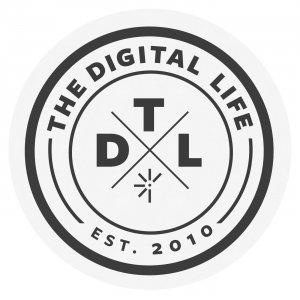The Digital Life

mHealth in Africa
Jon: Welcome to episode 101 of The Digital Life, a show about our adventures in the world of design and technology. I'm your host, Jon Follett and with me is founder and co-host, Dirk Knemeyer.
Dirk: Hey Jon, it's good to hear your voice but I'm really excited that we have another person on the line with us today.
Jon: That's right, with us today is our old friend, Niti Bhan and if you'd like to learn more about Niti, you can check out the link to her background and website, which you'll find on thedigitalife.com suffice it to say she is an expert in emerging markets and technology and we're delighted to have her with us today on The Digital Life. Welcome Niti.
Niti: Thank you Jonathan. Hello Dirk.
Jon: So today our topic is one that's near and dear to our hearts, I think, the mobile health sphere and specifically how that is playing out in emerging markets like Africa which Niti is very well experienced. I wanted to que up the conversation today by saying that mobile health, at least in the first world, is being depicted as something that is scalable and helpful. So doctors can't necessarily scale to take care of hundreds and thousands of patients but we're all starting to have these mobile devices in our pockets, these smartphones, and these rich applications that come along with them and the premise is that when we have these phones, we'll be able to better manage our own health in conjunction with our doctors. And this becomes even more important when you're talking about emerging markets where there might not be very easy access to healthcare.
Niti, I wanted to pose the question to you, how are you seeing mobile health play out, in your experience, in the African continent?
Niti: Okay, first I should say, I've been watching it but I haven't yet had firsthand experience with it. With regard to design or design research, my most recent experiences have been to do with energy and with money, of course — mobile money. It's more of as an observer on the ground from the infrastructural point-of-view, from the operating environment point-of-view, and also from observing trends in what's going on.
As you said when we started the conversation, mobile health is seen as something that's scalable and probably affordable in the developed world. Which has more infrastructure both in terms of bandwidth, connectivity, affordable devices, and healthcare infrastructure. What I'm seeing, and I'm speaking now from the context of sub-Saharan Africa, rather than broad emerging markets which tend, these day to encompass Latin America, India, Southeast Asia. From the African context where it's getting interesting is while wellness seems to be the focus of- and health, since I'm calling in from Europe, for example in Europe the emphasis is on fitness, on diet, nutrition, and of course, monitoring. That's particularly for those who may already have an existing disease or for the elderly. There's a lot of applications, in fact there's going to be a European mHealth summit in the middle of May in Latvia.
So it's moving forward, in Africa I'm seeing it in three broad spaces. One space is supported, meaning two of these spaces are broadly supported by the GSMA which is the mobile operator and mobile industry association, the GSM association. Their mHealth initiatives focus on a large variety of elements, it could include data gathering, it can include monitoring, like you said the device has become ubiquitous. The penetration rates in sub-Saharan Africa are now, in some countries, let's say Ghana, Nigeria, South Africa, Kenya, within a point or two of the penetration rate of the US, just to give you context. These are not backward countries and mobiles are definitely in everybody's hand. Even smartphones and iPhones, just for a side note the numbers have it, they're reaching one-third of the phones are smartphones, affordable smartphones at the sub $100 level have come in, Android phones are there.






 Visit Podcast Website
Visit Podcast Website RSS Podcast Feed
RSS Podcast Feed Subscribe
Subscribe
 Add to MyCast
Add to MyCast